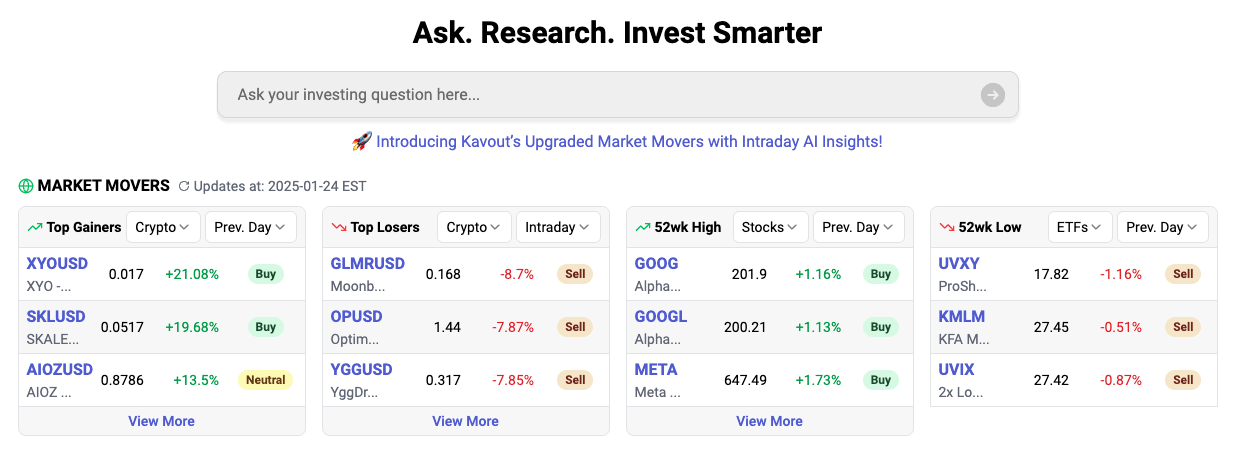MarketLens
Broadcom’s VMware Cloud Foundation Updates: Enhancing Digital Innovation and Cybersecurity
Introduction
In the rapidly evolving landscape of cloud computing, Broadcom’s VMware Cloud Foundation (VCF) has emerged as a pivotal platform for organizations aiming to modernize their infrastructure, enhance developer productivity, and bolster cybersecurity. The latest release, VMware Cloud Foundation 5.2, introduces a suite of significant updates and enhancements designed to support digital innovation and improve cyber resiliency. This report delves into the key features and improvements of VCF 5.2, examining how they contribute to operational effectiveness, security, and overall performance.
Enhancing Digital Innovation
Infrastructure Modernization
One of the primary goals of VMware Cloud Foundation 5.2 is to facilitate faster infrastructure modernization. The introduction of the VCF Import capability is a game-changer in this regard. This feature allows organizations to integrate existing vSphere and vSAN environments into VCF without the need for a complete rebuild. By centralizing management and optimizing resources, VCF Import significantly reduces the complexity and time required for infrastructure upgrades.
Additionally, VCF 5.2 supports vSAN Max and vSAN ESA stretched clusters, providing customers with petabyte-scale disaggregated storage and active-active availability. This enhancement ensures that organizations can scale their storage solutions efficiently while maintaining high availability and performance.
Developer Productivity
Broadcom has placed a strong emphasis on improving developer productivity with the latest VCF release. The introduction of Tanzu Kubernetes Grid (TKG) as an independent service simplifies the deployment and management of Kubernetes clusters. This feature enables developers to leverage Kubernetes for container orchestration without the overhead of managing the underlying infrastructure.
Moreover, VCF 5.2 includes self-service infrastructure access for developers, allowing them to provision and manage resources independently. This capability not only accelerates development cycles but also empowers developers to innovate without being constrained by IT bottlenecks.
Strengthening Cybersecurity
ESXi Live Patching
Cybersecurity is a critical concern for organizations operating in the cloud, and VCF 5.2 addresses this with several robust features. One of the standout enhancements is ESXi Live Patching, which allows administrators to apply patches to ESXi hosts without evacuating virtual machines or placing hosts into maintenance mode. This capability ensures that critical security updates can be deployed swiftly, minimizing downtime and reducing the risk of vulnerabilities being exploited.
vSAN Data Protection and VMware vDefend
VCF 5.2 also introduces improved vSAN Data Protection, which offers enhanced protection against ransomware attacks. This feature ensures that data stored on vSAN is safeguarded through advanced encryption and backup mechanisms, providing an additional layer of security for critical workloads.
Furthermore, VMware vDefend lateral security is designed to protect against lateral attacks within the network. By monitoring and controlling east-west traffic, vDefend helps prevent the spread of malware and other malicious activities, thereby enhancing the overall security posture of the cloud environment.
Operational Effectiveness
Simplified Management
The latest VCF release aims to simplify private cloud deployments and streamline management processes. The VCF Import capability, as mentioned earlier, plays a crucial role in this by enabling seamless integration of existing environments. Additionally, VCF Edge provides an optimized configuration for edge use cases, ensuring scalable, cost-efficient, and flexible management from the data center to the edge.
Agile Data Protection
VCF 5.2 introduces agile data protection features that enhance the resilience and reliability of cloud infrastructure. These features include flexible topologies and enhanced management capabilities for vSAN, allowing organizations to adapt their storage configurations to meet evolving business needs. By providing robust data protection mechanisms, VCF 5.2 ensures that critical data remains secure and accessible, even in the face of unforeseen disruptions.
Performance and Innovation
vSphere 8 Update 3
The vSphere 8 Update 3, included in VCF 5.2, brings several performance enhancements and innovations to the platform. Key improvements in this update include advancements in the vSphere IaaS Control Plane, which streamline resource allocation and management. Additionally, enhancements in security, compliance, and storage further bolster the performance and reliability of the cloud infrastructure.
Support for Dual Data Processing Units
VCF 5.2 also introduces support for dual data processing units (DPUs), which significantly enhance the performance and efficiency of data processing tasks. By leveraging DPUs, organizations can achieve higher throughput and lower latency, enabling them to handle demanding workloads with ease. This capability is particularly beneficial for applications that require intensive data processing, such as artificial intelligence and machine learning.
Cost Efficiency
Lower Total Cost of Ownership
One of the key advantages of VMware Cloud Foundation 5.2 is its ability to deliver a lower total cost of ownership (TCO) for organizations. By consolidating 168 products into a subscription service, VCF 5.2 reduces the complexity and cost associated with managing multiple platforms. According to Broadcom, this consolidation can lead to a reduction in TCO by 40-50%, making it an attractive option for organizations looking to optimize their IT budgets.
Consistent Pricing Across Platforms
Broadcom has also introduced consistent pricing for VMware software across different platforms, further simplifying cost management for organizations. This consistency ensures that customers can accurately predict and manage their expenses, regardless of the specific VMware products they are using. By providing transparent and predictable pricing, Broadcom helps organizations make informed decisions about their cloud investments.
Conclusion
Broadcom’s VMware Cloud Foundation 5.2 represents a significant leap forward in the realm of cloud computing, offering a comprehensive suite of features designed to enhance digital innovation and cybersecurity. With its focus on infrastructure modernization, developer productivity, operational effectiveness, performance, and cost efficiency, VCF 5.2 provides organizations with the tools they need to thrive in an increasingly digital world.
The introduction of capabilities such as VCF Import, Tanzu Kubernetes Grid, ESXi Live Patching, and vSAN Data Protection underscores Broadcom’s commitment to delivering a secure, efficient, and scalable cloud platform. As organizations continue to navigate the complexities of digital transformation, VMware Cloud Foundation 5.2 stands out as a robust solution that empowers them to innovate, protect, and optimize their cloud environments.
In conclusion, Broadcom’s VMware Cloud Foundation 5.2 is a testament to the company’s dedication to driving digital innovation and enhancing cybersecurity. By providing a comprehensive and integrated cloud platform, Broadcom enables organizations to achieve their digital transformation goals while maintaining a strong security posture. As the cloud computing landscape continues to evolve, VMware Cloud Foundation 5.2 is poised to play a pivotal role in shaping the future of digital infrastructure.
Related Articles
Category
You may also like
No related articles available
Breaking News
View All →No topics available at the moment





